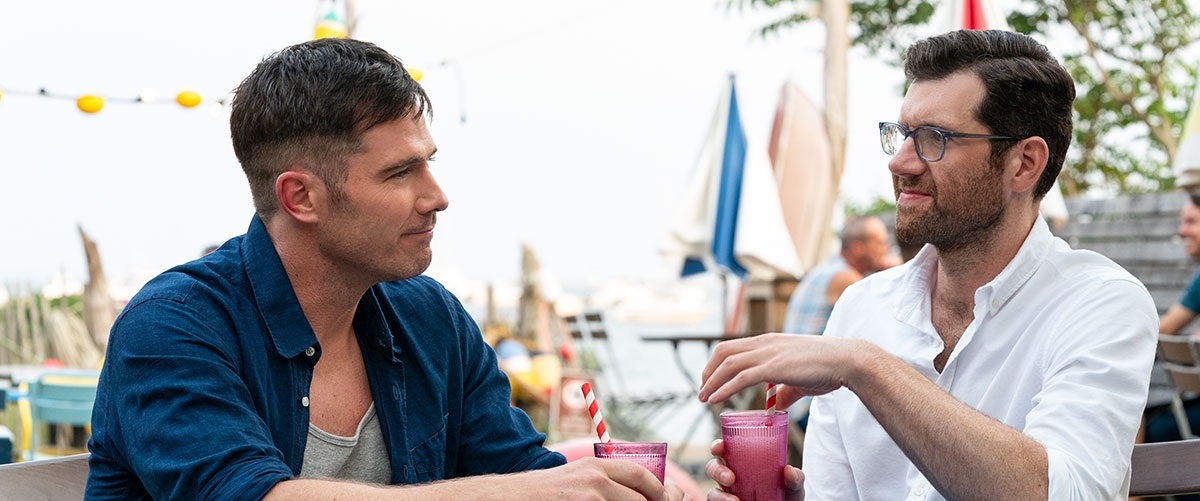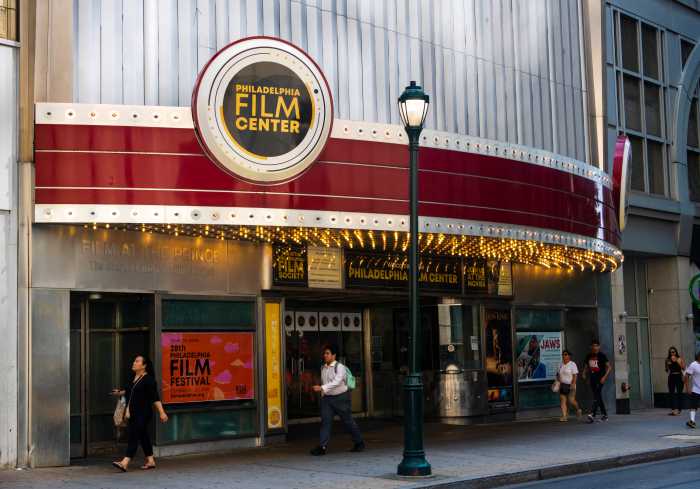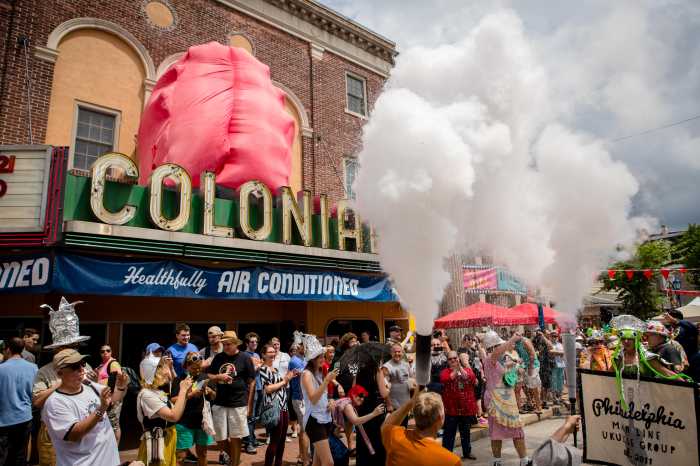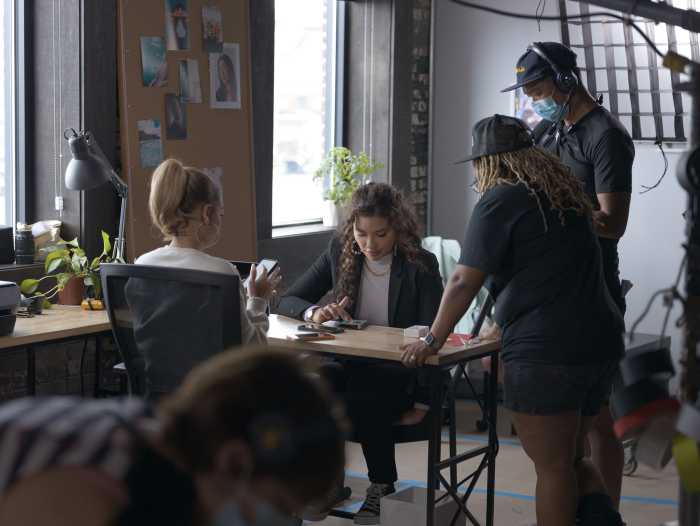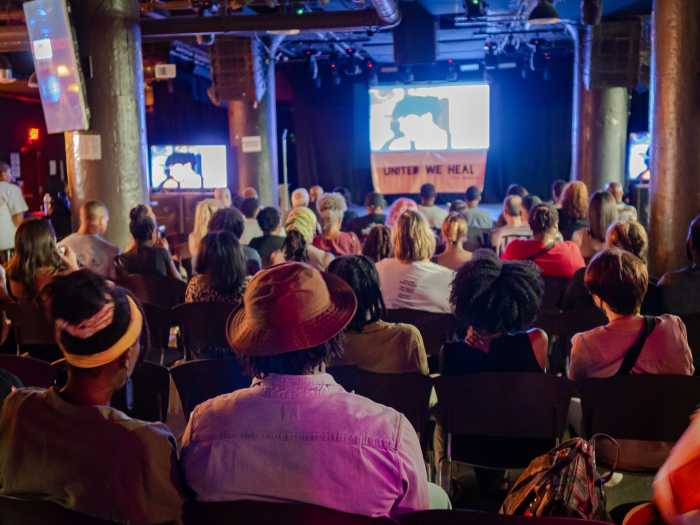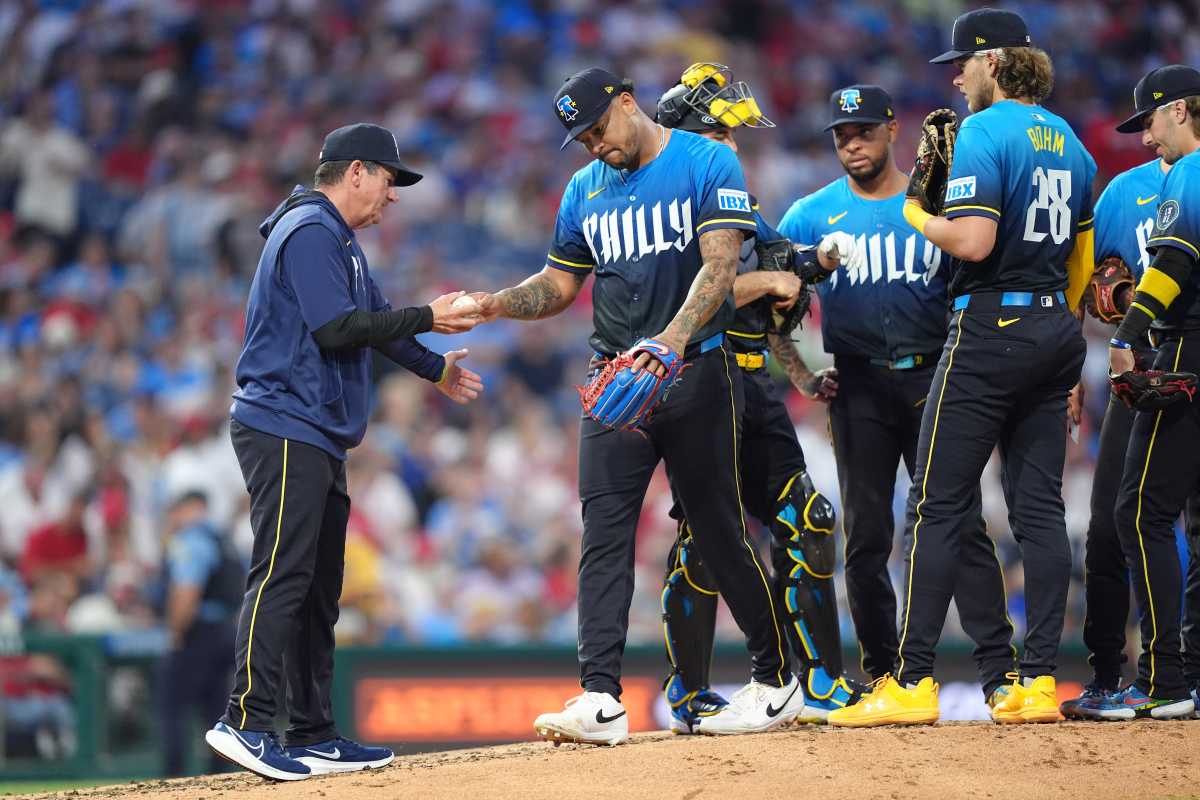Bros is here to make history.
When director Nicholas Stoller approached Billy Eichner to inquire about working together to write/collaborate on a romantic comedy following two men, the actor (who had worked with Stoller on projects like “Neighbors” and Netflix’s “Friends From College”) wasn’t exactly sure what would pan out.
Being in the entertainment industry for some time, but now for the first time stepping up to the writer’s mound, it was a tall order for Eichner. But he knew what would make an engaging story.
“It should be as funny as ‘Bridesmaids,’ and as funny as ‘The 40-Year-Old Virgin’ and also have a lot of heart and be very honest — those were my priorities,” Eichner explains. Stoller had told the actor, who was set to star in the film that now is “Bros,” that comedy veteran Judd Apatow would likely sign on with the project as well. And he did.
“[Nick and Judd] always encouraged me — even when some of it was eye-opening to them, the details of gay culture — they always said let’s be honest,” Eichner continues.
In “Bros,” Eichner plays Bobby, a proud New Yorker who hosts a queer history podcast called “11th Brick,” and an even prouder director of the first national LGBTQ history museum, which as the movie starts, is on the brink of finally opening its doors. Bobby is independent and he makes that clear, especially when he meets Aaron (played by one of Hallmark’s most notable faces, Luke Macfarlane) while out one night at a club.
The spark is immediate for them both through conversations and similarities in humor, but soon normal, real-life insecurities pop in through the form of emotional unavailability. Nonetheless, they exchange numbers to maybe meet up again in the future. But nothing serious.
Macfarlane signed on for the role for the humor, but also for its relatability.
“Beyond the laughs that you have when reading the script — which is rarer than you think — I related to who Aaron was growing up in the 90s and being a gay kid in a small town with these questions of masculinity. And you build this sort of persona to become what you see in the media. That was during the time of Abercrombie & Fitch, and Mark Wahlberg in those ‘tighty whities,’ and just this idea of what the male physique was. I related to Aaron in that sense of wanting to be a certain thing and appear tough to the world.”
As Macfarlane describes him, Aaron is somewhat showboating to the world. He’s very successful in so many aspects of his life with his apartment, his job and a supportive family. But really, he’s trying to figure out how to fit in to keep everyone happy.
Bobby on the other hand is vocal in all aspects of his life, and you know what he’s thinking… because he tells you.
“I would like to think he’s very fun and clever and quick… But he is emotionally aloof and really prides himself on that. And the fact that he’s had to be very self-reliant in his life, both professionally and personally, plus that he’s made it in spite of that and in spite of all of those obstacles,” Eichner explains. “I think all that fighting that he had to do turned him into someone who’s a little tough on the outside, and not willing to be vulnerable. That’s an area where [Luke and I’s] characters, while very different on the outside, overlap underneath.”
Bobby and Aaron move through some highs and lows of relationships that anyone would go through, both within and outside the LGBTQ community. But, there’s also peeks into gay culture that make for some of the driving story arcs and also some of the more memorable moments from “Bros.”
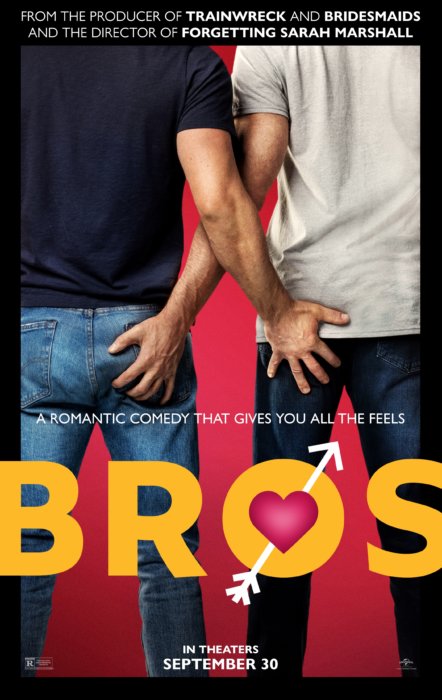
“I think we don’t get many gay characters in mainstream projects like this that get to be multi-dimensional. We’re always the best friend or the wacky sidekick, we’re always there to council our girlfriend on how she can be more fulfilled and find love. We really never get to be emotionally complex characters ourselves, and we very rarely get to be at the center of the story,” Eichner explained.
And “Bros” is certainly here to change that — and it actually already has. Eichner helped write and stars in the feature, making the comedian and four-time Emmy nominated actor the first openly gay man to ever write and star in his own major studio film. It’s also the first major studio film to have an entirely LGBTQ principal cast.
And for Macfarlane, who came out early in his career, it’s been a long time coming.
“When I made that decision at that time, it really was the correct thing for me to do. I don’t think I’ve ever once before seen a casting call that said: ‘We want only gay people,’ and that was an incredibly unique thing. So I’m grateful for that guy — me — that decided to do that at that age,” Macfarlane says.
He also was enthusiastic about the new precedents that “Bros” can set: “I think the rom-com is a challenging medium, and I’ll say maybe one of the hardest because the audience knows what’s going to happen for the most part,” Macfarlane continued. “So, how do you surprise them? I think for a lot of people who are watching this, they’re going to be surprised about learning about gay culture. So, we have that sort of built-in benefit where people get to pull back the curtain and see what it is like when two men fall in love”
“Bros” also comes at a time when the movie-going experience seems limited to superhero flicks and explosive action features.
“Hollywood somewhere along the way decided that comedies are the thing you watch by yourself at home. And for me, what is so exciting about a romantic comedy is to go to a movie theater and laugh with hundreds of other people,” says Eichner. “It’s a communal experience, and it’s one we don’t get any more. We get a lot of movies in theaters now that are very dark and gritty… and those are really great, but, what happened to movies that make you feel good? And that make you laugh a lot? That was our goal here.”
As a rom-com, “Bros” hits all the right notes, and it feels strangely warm and familiar to past films of the same genre. But there’s a difference of representation, which is a huge focal point in this film, but not in a way that feels like a lesson. Because this is, in fact, how some people in the world live: They fall in love, they fight, they make up and they build a life just like anyone else.
“It’s just a great time at the movies, and that’s something we haven’t had in a long time,” Eichner concludes. “[This movie] is more than a rom-com… It’s a cultural event. And that’s what makes it historic.”
“Bros” hits theaters Sept. 30.



